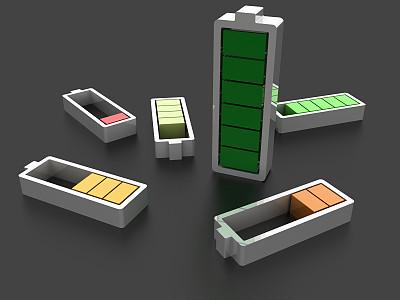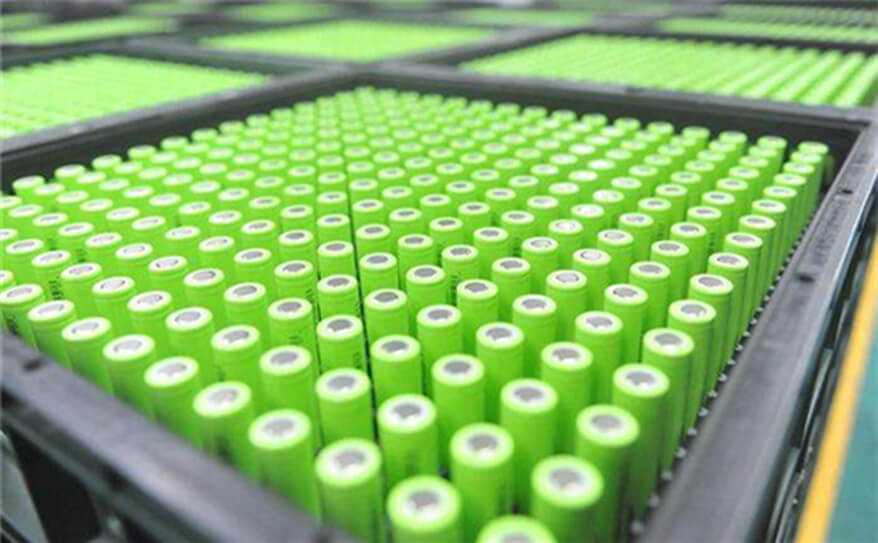Can you leave lithium batteries on charge?
Dec 04, 2019 Pageview:3555
Should you leave lithium batteries on the charger?
The short answer to this question is that it depends on the charger itself. Lithium-ion-specific battery chargers are programmed to stop charging the battery once it reached 100%. These types of chargers tend to fully stop providing any electrical charge once the battery reaches 100% and it will not recharge again unless the battery is unplugged then plugged once again. So, these types of chargers, the battery once reached 100% will not be recharged even if it started to self-discharge. Other types of chargers that are no Lithium-ion-specific ones, they will keep on charging the battery even after reaching 100%. Using these kinds of chargers with Lithium-ion batteries is extremely dangerous, as overcharging a Lithium-ion battery may lead to explosions and fire.
Is it bad to leave lithium batteries plugged in?
The short answer is Yes, it is bad to leave your Lithium-ion battery plugged in. When you recharge your battery, if you charge it to the 100% level, do not leave it plugged-in. Yes, there is a safety circuit that will protect the battery from overcharging and prevent it from exploding. However, if you kept it plugged in for a large amount of time, electronics inside will age more quickly thus, reducing its life span. It is recommended that once every month or once per 30 discharge cycles, you discharge your battery to cut off point and then recharge it to 100%. This process will recalibrate your battery and prolong its life span. Charging your Li-ion battery is the key to making your battery last as long as possible. You may have heard that when you buy a new Li-ion battery you must discharge it to the cut off point then recharge it again. On modern batteries that really does not matter, as we have mentioned before, modern Li-ion batteries do not have discharge memory.
However, there are certain things to do when you charge your battery that will keep it healthy. Allowing for partial discharge. This is the best way to protect your Li-ion battery. According to Battery University, it is recommended to discharge your batteries until it reaches 50% then you start recharging it once again, however, avoid making it reach the 100% level.
Can you overcharge a lithium battery?
Yes, you can overcharge a lithium-ion battery. However, it is not that easy. Most devices nowadays have an internal circuit that stops the charging process when the battery reaches 100%. The control system in these devices prevents overcharging, which can cause the lithium ion battery to overheat and burn. The only way a Lithium-ion battery contained inside a modern device overcharge is if that control unit malfunctioned. If that happened then you will notice that your device is getting hotter and the performance is slower than the usual. IF that happens, turn off your device immediately and send it to maintenance. It is important to do so, as continue to use the device while the battery is overcharging, will lead to catastrophic results like an explosion. An example of that is the 2016 laptop's incident when several customers reported that a certain battery designed for an HP laptop, catch fire and exploded. The common factor between these batteries was that they were bought on Amazon. After investigating the incident, it turns out that the manufacturers of this battery did not use good materials for the batteries, which in return resulted that batteries overheated when charging and exploded. At least one person was injured in that incident. He goes by the name Nicholas Jones. That is how dangerous overcharging is.
Tips on how to avoid Overcharging Lithium-ion batteries
Charge your batteries at room temperature
It is crucial that you charge your Li-ion batteries at room temperature. Heat is the worst thing that can happen to a Li-ion battery when charging. That means, if your car is hot do not charge your phone in it, instead wait for the AC to kick in then start charging your battery.
Choose a Li-ion battery with high capacity instead of carrying spare ones
Charging and Discharging cycles in a Li-ion battery is basically a chemical reaction. Whether you are using the battery or not the chemical reaction occurs. The difference is the rate the chemical reaction happens. That is why having a high capacity battery is better than having two medium to low capacity ones. A high capacity Li-ion battery will eventually have a life span longer than two medium to low capacity batteries combined.
Perform Partial discharges and avoid full ones as much as possible
Li-ion batteries do not have what we call a charge memory. Which means, that deep discharging cycles are not required. According to experts, it is better to allow partial discharge cycles instead of full ones to preserve the life span of the Li-ion battery.
However, once a month it is better to perform a completely full discharge. Let the Li-ion battery to discharge to the cut-off point and then recharge it once more to the 100%. Despite, the partial discharge being beneficial, it creates a condition called digital memory. This condition decreases the device's power gauge accuracy. Doing that will recalibrate the power gauge.
Avoid recharging a completely discharged Li-ion battery
When a lithium-ion battery is completely discharged, it means discharging below 2.5 volts per cell. There is a built-in safety circuit that will open and lock the battery. If you plugged your conventional charger the battery will appear dead to you. That is why if you ever encountered this condition go to a specialist to solve this problem. When the Li-ion reaches this state only battery analyzers having boost function will recharge the battery.
If the Li-ion battery was stored in the completely discharged condition, do not recharge them for safety reasons. Go to your local specialist instead.
- Prev Article: Can I send lithium batteries in the mail?
- Next Article: High Amp Lithium Ion Battery Calculation
Leave Message
Hottest Categories
-
Hottest Industry News
-
Latest Industry News











